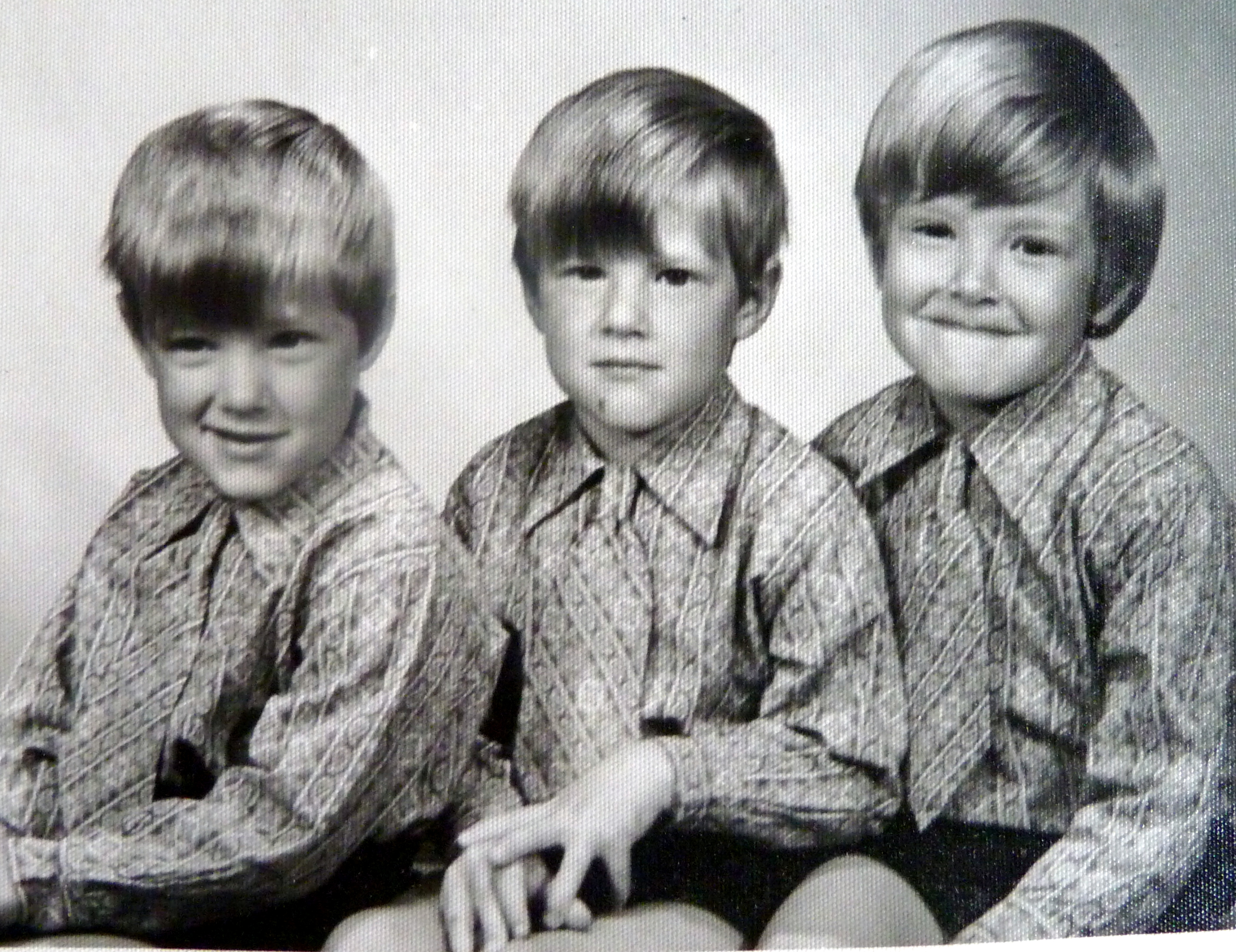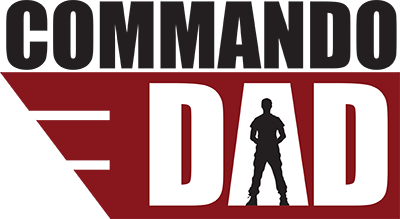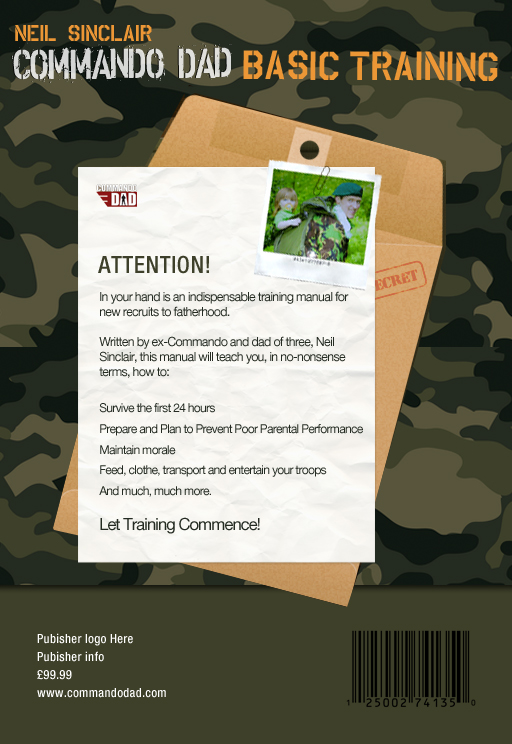 In 1970, on a warm summers evening in July, my dad dropped my mum, who was in labour with me and my twin brother, off at the hospital and asked her to call him when she felt ready to cope with visitors. There didn’t seem anything unusual in that to either mum or dad, that was just how things were done. When their wives were in labour, men went off to work, or sat in the waiting room with flowers like in a Carry On film. Oh how times have changed.
In 1970, on a warm summers evening in July, my dad dropped my mum, who was in labour with me and my twin brother, off at the hospital and asked her to call him when she felt ready to cope with visitors. There didn’t seem anything unusual in that to either mum or dad, that was just how things were done. When their wives were in labour, men went off to work, or sat in the waiting room with flowers like in a Carry On film. Oh how times have changed.
I couldn’t wait for the birth of my children. I read the books, attended the ante-natal classes and got to know the midwife. I was convinced that if my wife went into labour unexpectedly I would be able to deliver my son (tying off the placenta with a clean shoelace – I looked it up). Luckily, my emergency delivery plans never saw the light of day as we made it to the hospital in plenty of time.
I was right by my wife’s side throughout, offering what comfort and support I could. And words cannot explain the feeling of finally holding my brand new baby trooper in my arms. It is an amazing experience, as any dad will tell you.
But then something really strange happened after the birth. Without any warning, I disappeared. I became completely invisible to doctors, nurses and the midwife. I think my wife could see me, but I was finding it hard to get to the side of her bed to double check.
So perhaps I didn’t physically disappear (although that would make a good story) but it certainly felt like it. And that’s when I first realised that it’s very, very easy to become sidelined as a new dad. And not only in the delivery room, but beyond it too. The vast majority of advice, support and care is geared towards mum. Don’t get me wrong, parents need all the advice, support and care that it is possible to give them, but dads are parents too. And we have a crucial role to play, right from the minute we welcome our trooper into the world.
We need to provide physical support, such as taking on night feeds, keeping the house squared away, buying supplies, getting meals on the table, washing clothes and generally keeping on top of everything. But most importantly, we need to make sure that our partner has everything she physically needs, from time to take a bath to healthy food.
We also need to provide emotional support, essential to keeping morale high. Sometimes, our partners can feel as if life has become all about the baby trooper. Reassure her and let her know you’re in this together. Having a new baby is tiring for everyone, but your wife and trooper have been through labour too. Tempers can get frayed in the beginning when you’re both adjusting to a completely new lifestyle on limited sleep. Keep calm.
And our trooper needs us too. Don’t believe that we aren’t biologically programmed to be good carers. We may not have the ‘maternal instinct’ but I can assure you that the minute my troopers were born, my wife and I both had a huge instinct to love, protect and care for them. We got the ‘parental instinct’. And in terms of physically caring for a baby, we can do everything but breastfeed. It might not seem like it at the time (well it certainly didn’t for me) but with practical experience, you will easily master the basics.
But of course it doesn’t end there. Even after ten years as a stay at home dad, I still consider myself a Commando Dad in training. It is worth the effort. To a trooper, their dad has many roles, often falling somewhere between Hero, Role Model and Protector. When you become a dad you step into those shoes and you owe it to yourself – and your troopers – to be the best dad you can be. So don’t let yourself get sidelined, dads. You are simply too important.
I wrote this blog for The Baba Blog, a great blog full of practical advice and tips for new mums…..and hopefully some new dads too.
Tag: parenting book
Apparently, it is virtually impossible to get a publisher. I’m glad I didn’t know before I tried, or I might have been put off. As it is, I got two offers on my book. This is how.
- I wrote the book. Well, the first version of it any way. After four years of thinking about it, talking about it and getting my friends to agree it was a good idea, I was no nearer to actually writing it. People were now starting to ask me whatever happened about the book. I found it hard to say nothing, because I never did anything with it – far harder than I would have found it to say that I had given it my best shot, but no publisher was interested. So for 10 Saturday mornings in a row, I sat down with my wife and wrote a chapter. We promised to send what we’d written to our cousin Annie every week, a promise that kept us honest. I found that having a pile of papers that I could point to and say ‘this is my book’ had a miraculous effect on galvanising me into action. I had a book. It was real.

2. I wrote a book synopsis. In fact, the synopsis was so good that it actually made me change the book. Trying to make it as appealing as possible to publishers, (by answering questions such as who would buy it, how it was different from what was already out there etc.) made me look at my book more critically. I included three chapters of the book in the synopsis.
3. I didn’t bother with an agent. Oh, I know you are supposed to, because that’s the way of doing things. But when the penny dropped that I was supposed to go through the Writer’s & Artist’s Yearbook and send out a lot of manuscripts to a lot of agents, the majority of whom, by the simple law of averages would reject it I decided not to. I didn’t want to feel that I was a failure before I had even begun. And stamps are expensive.
4. I did my research on publishers. The problem with agents was that we didn’t know the difference between the Good, the Bad and the Ugly. So I thought that by far the best bet was to target suitable publishers and ring them up to find out the agents they care about. Then I’d just target those. I had already researched publishers – on and offline – that had released books specifically for dads, written by dads. I had a list of 8. I called up 4, and two of those asked to see the manuscript. The two that reviewed the manuscript made offers. In less than a week.
5. I spoke to the publishers about what they thought my book would look like. The first time you speak to a publisher it is an exciting and amazing experience but I had watched too many documentaries about famous bands signing to labels to get carried away in the moment. Act in haste, repent at leisure. As my criteria for Commando Dad: Basic Training had always been ‘would I pick up this book?’ and ‘would this book have been useful to me as a stay-at-home dad?’ I prepared a set of questions to find out if their vision for the book was the same as mine. So for example, I asked them what they thought it would look like, how big it would be, how many pages it would have, how much they’d like to sell it for etc. I also asked them to send over a draft contract, which is very, very telling.
In the end I chose the publisher that seemed to have a similar vision for the book to the one I had and was amenable to listening to the opinion of a complete novice like me. The book’s not out until May next year – just in time to make a great present for Father’s Day – so I have yet to see how it will sell, but I can honestly say that together we produced the exact book that I have been seeing in my mind’s eye for years.
This of course is the short version – each of these bullet points could make a long and probably boring blog all of their own, and we haven’t even got into the ‘what to do with a contract’ territory, but the main points are here. I am happy to elaborate if anyone wants me to.

